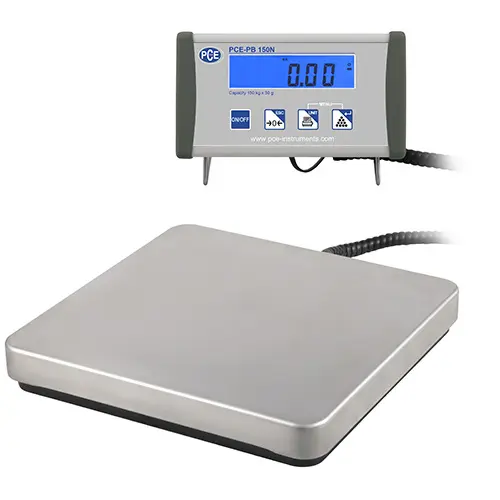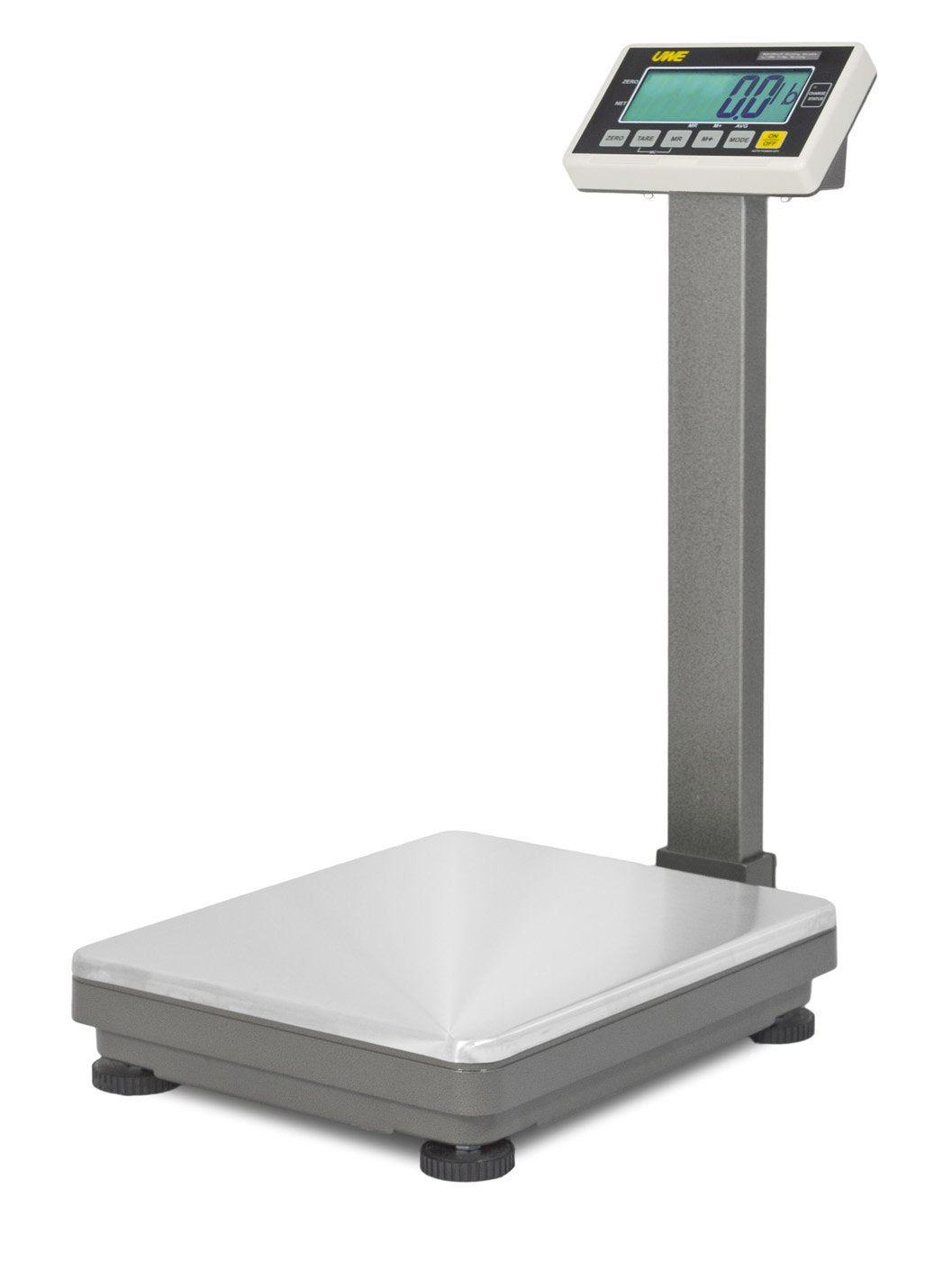How to Preserve and Adjust Your Industrial Scales Effectively
How to Preserve and Adjust Your Industrial Scales Effectively
Blog Article

Top Functions to Try To Find in High-Quality Industrial Scales
In the world of industrial procedures, selecting the right range is critical for making certain effectiveness and precision. Secret features such as accuracy and accuracy, along with toughness and construct high quality, play a considerable duty in figuring out the viability of a scale for details applications.
Accuracy and Accuracy
Ensuring the accuracy and precision of industrial scales is extremely important for efficient procedures across different markets. Accurate measurements are critical in markets such as production, logistics, and food processing, where even small discrepancies can cause significant monetary losses, endangered product top quality, or regulative non-compliance. High-quality industrial ranges are made to provide reliable efficiency, making use of advanced modern technology to ensure precise weight readings.
The calibration process is essential in keeping the accuracy of these scales. Normal calibration against licensed reference weights ensures that any type of drift in dimension is corrected, thus maintaining conformity with sector criteria. Additionally, the usage of high-resolution lots cells boosts the scale's ability to detect minute weight modifications, better improving its precision.

Longevity and Construct Quality
Resilience and develop high quality are important elements that identify the durability and dependability of industrial scales in requiring settings. Industrial scales are typically based on extreme problems, including exposure to dirt, dampness, and hefty lots. Therefore, the materials used in their construction play an important function in ensuring they can endure these challenges.
High-quality commercial scales typically feature durable real estates made from products such as stainless steel or light weight aluminum, which not just give architectural integrity yet likewise stand up to corrosion and wear. Furthermore, interest to detail in the design, such as strengthened edges and shock-absorbent feet, can improve toughness and shield delicate parts from damages.
Additionally, high-grade parts, including tons cells and electronic components, add to the total develop quality. These components must be developed to endure temperature variations and vibrations commonly discovered in industrial setups. Ensuring proper access protection (IP score) is also important, as it shows the scale's capability to withstand dirt and fluid direct exposure.
Ultimately, picking commercial scales with exceptional longevity and develop top quality will certainly result in a much more dependable, lasting remedy that meets the extensive needs of numerous industrial applications.
Lots Capability and Variety
When picking industrial scales, comprehending their lots capability and range is vital for conference specific operational requirements. Lots capacity describes the optimum weight that a range can properly measure, while the variety suggests the range of weights the range can handle properly. It is essential to select a scale that not just satisfies existing needs but also fits prospective future needs.
Different markets have one-of-a-kind weight dimension demands. For example, a production center might call for ranges efficient in considering hefty equipment parts, while a laboratory might only require ranges for lighter products. Picking a scale with an appropriate load capacity ensures accuracy and precision, preventing overloading that could lead to tools damages or imprecise analyses.
A range that can determine both light and hefty weights accurately can boost operational performance, allowing for versatile applications. Spending in scales with proper tons ability and variety considerably adds to efficiency, compliance with market standards, and general you could try here functional reliability.
Ease of Usage and Upkeep

Along with user-friendliness, simplicity of maintenance is another important aspect to take into consideration. Scales that are created with available elements promote regular maintenance jobs such as battery, calibration, and cleansing replacement. A modular design can better improve these procedures, enabling quick repairs and very little downtime.
Moreover, the products made use of in the construction of commercial ranges play a significant function in upkeep. Scales made from long lasting, corrosion-resistant products are easier to clean and much less vulnerable to damages, which prolongs their life-span and reduces general functional prices.
Normal upkeep routines, guided by the producer's suggestions, are important for making sure ideal efficiency. By prioritizing simplicity of use and upkeep, services can ensure that their industrial scales remain effective, reliable, and effective tools in their operations. This causes enhanced efficiency and an extra reliable process.
Connection and Assimilation Alternatives
Incorporating commercial ranges right into existing functional structures is considerably improved by robust connection choices. Top notch commercial scales ought to provide multiple connectivity techniques, including USB, Ethernet, and wireless choices such as Wi-Fi or Bluetooth. These functions help with seamless information transfer to central databases, ERP systems, or cloud systems, making it possible for real-time surveillance and reporting.
Additionally, advanced combination choices enable for compatibility with existing equipment, such as printers or barcode scanners, improving and streamlining processes operations performance. Scales that sustain industry-standard methods, such as Modbus or RS-232, can quickly communicate with various tools and systems, making certain a cohesive operational setting.
Another vital aspect is the capacity to integrate with software application solutions that examine and visualize information - Industrial Scales. Scales outfitted with APIs or software application growth kits (SDKs) supply companies the adaptability to customize performances customized to their particular requirements
Finally, considering future scalability is crucial; selecting scales that can adapt to developing technical innovations guarantees long-term value and decreases the need for expensive substitutes. In recap, reviewing connectivity and combination alternatives is vital when selecting top notch commercial ranges that this page will improve functional performance and information monitoring.
Conclusion
In final thought, choosing high-quality industrial scales requires cautious link consideration of a number of vital attributes. Industrial Scales. Focusing on these qualities eventually leads to improved performance and long-lasting value in industrial applications, reinforcing the importance of educated decision-making in scale option.
In the realm of commercial operations, selecting the right range is essential for making sure efficiency and precision.Guaranteeing the precision and precision of commercial ranges is critical for reliable operations throughout various fields. Tons capability refers to the maximum weight that a scale can properly measure, while the array suggests the spectrum of weights the scale can handle properly. A production center may call for scales qualified of weighing heavy equipment components, while a research laboratory might just need ranges for lighter materials. By focusing on convenience of use and maintenance, organizations can guarantee that their commercial ranges continue to be efficient, trustworthy, and reliable devices in their operations.
Report this page